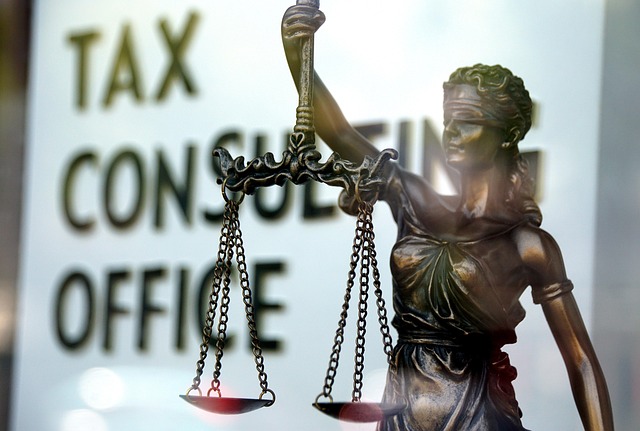Environmental Crime Trials (ECTs) are gaining momentum as a crucial area of criminal justice, addressing the intricate legal challenges tied to environmental regulations, particularly in healthcare. These trials expose the ecological damage caused by corporations and individuals, holding them accountable through stringent legal procedures. The convergence of healthcare and environmental justice has led to significant legal actions against historical injustices. ECTs not only deliver justice but also act as deterrents, shaping corporate behavior and public perception. Legal challenges within healthcare regulations play a vital role in these trials, ensuring accountability while refining regulatory approaches for better environmental protection. As ECTs evolve, their outcomes will influence future legal challenges in healthcare regulations, encouraging stronger enforcement and corporate responsibility.
Environmental Crime Trials: Uncovering Corporate Accountability in a Changing Landscape. In an era where environmental justice is at the forefront of global discourse, understanding the legal framework of environmental crime trials is crucial. This article explores the rise of healthcare regulations as a driver for environmental justice, delving into key legal challenges in holding corporations accountable. Through notable case studies, we analyze successful prosecutions and their implications. Additionally, future strategies to enhance regulatory enforcement, particularly focusing on Legal Challenges in Healthcare Regulations, are discussed.
- Understanding Environmental Crime Trials: A Legal Framework
- The Rise of Healthcare Regulations in Environmental Justice
- Key Legal Challenges in Holding Corporations Accountable
- Case Studies: Notable Environmental Crime Trials
- Future Implications and Enhancing Regulatory Enforcement
Understanding Environmental Crime Trials: A Legal Framework

Environmental Crime Trials, a burgeoning field within criminal justice, present unique legal challenges distinct from traditional cases. These trials navigate complex landscapes, where environmental regulations and their enforcement form the backbone of the prosecution’s argument. Understanding this framework involves delving into the intricate web of laws and policies aimed at protecting our planet. In today’s world, where environmental issues span national boundaries, these trials often mirror the complexity of international legal challenges, particularly in terms of healthcare regulations and their impact on the environment.
The white-collar defense, a common tactic in such cases, poses intriguing dynamics for jury trials across the country. Prosecutors must demonstrate not only that crimes were committed but also the intent behind them, often involving years of environmental damage. As these trials gain traction, they set precedents and shape public perception, underscoring the nation’s commitment to addressing legal challenges in environmental protection.
The Rise of Healthcare Regulations in Environmental Justice

In recent years, the intersection of healthcare and environmental justice has gained significant legal attention, leading to a rise in regulations aimed at addressing historical injustices. Environmental crime trials have brought to light the profound impact of toxic exposure on marginalized communities, prompting stricter oversight. The push for stronger regulations is an attempt to rectify decades of environmental racism, where low-income and minority neighborhoods often bear the brunt of pollution and health risks. This shift is characterized by an unprecedented track record of holding white collar and economic crimes accountable, ensuring that corporate actors are responsible for their environmental impact.
Legal challenges in healthcare regulations have been met with resilience from both activists and the judiciary. As a result, there’s a growing recognition that addressing environmental injustices requires collaboration between philanthropic and political communities. This collaborative approach is crucial in implementing policies that not only regulate industries but also provide much-needed support to affected communities, fostering a more sustainable and equitable future.
Key Legal Challenges in Holding Corporations Accountable

In the realm of environmental crime trials, holding corporations accountable presents unique legal challenges. One significant hurdle is the complexity of corporate structures and the need to attribute liability to specific entities within the organization. This requires a meticulous understanding of not just the facts of each case but also the intricate web of ownership and management relationships. Additionally, businesses often employ sophisticated legal strategies in their winning challenging defense verdicts, making it crucial for prosecutors to navigate these complexities effectively.
Another key challenge arises from the evolution of healthcare regulations and environmental laws. As regulatory landscapes change, so do the interpretations of liability. The respective business practices that may have been permissible under old standards can become subjects of scrutiny under new regulations. Those with an unprecedented track record in navigating such legal hurdles often rely on expert testimony and innovative legal arguments to defend against charges.
Case Studies: Notable Environmental Crime Trials

Environmental crime trials have been a significant aspect of holding perpetrators accountable for their actions that harm the ecosystem. Notable cases such as the 2017 trial against ExxonMobil for its role in covering up climate change data have underscored the importance of legal challenges in healthcare regulations. This case, among others, has shown how corporations and individuals can be held liable for environmental transgressions through meticulous investigative work and robust enforcement processes.
These trials often span all stages of the investigative and enforcement process, from gathering evidence to presenting it in court. The successful prosecution of these cases not only ensures justice but also serves as a deterrent for future environmental crimes. This is particularly crucial considering the impact on public health and safety that such crimes can have. Whether targeting corporate giants or individual offenders, general criminal defense strategies play a pivotal role in protecting the environment and safeguarding communities.
Future Implications and Enhancing Regulatory Enforcement

As environmental crime trials gain momentum, future implications for regulatory enforcement are significant. The outcomes of these cases will shape how corporations and individuals are held accountable for their actions, setting a precedent for stronger legal challenges in healthcare regulations and beyond. By examining successful defense strategies, such as winning challenging defense verdicts and avoiding indictment, regulators can enhance their approach to enforcement. This includes refining investigation techniques, ensuring procedural fairness, and fostering better communication between industry and regulatory bodies.
The goal should be to achieve a balance between holding polluters accountable and encouraging corporate responsibility. Achieving complete dismissal of all charges in select cases can offer valuable insights into loopholes and weaknesses in current regulations. These lessons can then be applied to strengthen environmental protection laws, making them more effective in preventing future violations and fostering sustainable practices within industries.
Environmental crime trials play a pivotal role in upholding environmental justice, holding corporations accountable for their actions. As we’ve explored, understanding the legal framework, navigating key challenges like healthcare regulations, and studying notable case outcomes are essential steps towards enhancing regulatory enforcement. Moving forward, continued focus on these areas is crucial to ensure that environmental laws are effectively implemented, protecting our planet and communities from harmful activities. By addressing Legal Challenges in Healthcare Regulations, we can foster a more sustainable and equitable future.






